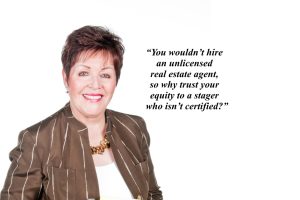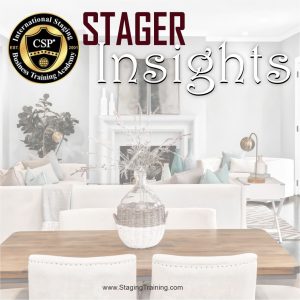by Jeff Stern (as republished from Staging Standard™ Magazine)
Another real estate agent has died, thanks to the vulnerability of working alone in an empty house.
The 33-year-old Annapolis agent was alone in an empty model home when he met a violent end. Someone came in, murdered him right there in his workplace, and left. No one has been charged.
I know what you’re thinking. “That’s Annapolis, not here, so it’s not really my problem.”
I don’t blame you. It’s hard to take something seriously when terrible things happen everywhere all the time. We naturally want to think bad things happen “over there” and “to them” and not to us.
I live in Winnipeg & these things happen here too. The unsolved murder of Irene Pearson, the this 2008 attempted assault where the agent escaped, and this 2007 sexual assault where the agent didn’t get away. Don’t forget the countless close-call stories that don’t make it into the news.
Like my friend who got a call from a guy who said he was moving to the city because of his business, needed a fast possession and wanted to see vacant homes in the Tuxedo area. She said she’d look up a list of homes and call him back at his hotel. She got his name, number and the name of his hotel, and promised to call him back at 4 p.m. After hanging up with him, she called the hotel to confirm such a person was even there. They had no one there by that name. Big red flag. She was smart to check.
And these are just stories from Winnipeg. You start looking up news stories from across Canada & USA your day gets a whole lot darker. Agents get attacked, robbed and murdered at work.
It happens.
A lot.
And it’s scary.
It’s also completely unnecessary.
I’m a passionate advocate for excellent customer service and going above and beyond the call of duty to serve my clients, but I’m also passionate about client property security and my own personal protection.
The fact is, real estate agents are at risk when hosting open houses. Thankfully, there are some things we can do.
-
Limit access – even at open houses
Years ago, near the beginning of my career, I walked up the sidewalk to a house with my clients in order to show them the house they were considering. We walked in and started looking around. Moments later, a guy – could be a neighbour, could be a thief, I didn’t know – opened the door, walked in and asked if he could look around too.
Umm… no? I explained it wasn’t an open house, but that I was showing my clients; this was a prearranged appointment. If he wanted a peek, he’d have to wait for the open house or make an appointment.
I was stunned that a complete stranger would just walk into another person’s home, feeling quite free to do so, and expect to be allowed to wander around unfettered. Really? I wondered how many others felt this way, and imagined more people casually wandering in while I was showing my clients another floor and completely unaware anyone else had come in. The guy left, and I locked the door. I’ve been locking the door ever since. I do this at open houses too, by the way.
I post a sign that says, “Welcome, I’m showing the home right now, please wait here.” This allows me to connect with the people looking and do what I can to show the property in the best possible light while protecting myself and my sellers from random people with who knows what motives and agendas from coming in and doing whatever they want.
-
One word: Vetting
Prequalify potential buyers. We are not obligated to show a home every Tom, Dick and Harriet who “wants to see”. On the contrary, that’s a sure way to aggravate your sellers and put everyone at risk. Instead, we should identify buyers.
Luckily, the federal FINTRAC laws are on our side, requiring us to identify the buyers when there’s an attempted transaction. Use that. The minute someone steps into your car or onto your property, get some I.D. Getting their driver’s license is a good start. If they don’t proceed, shred it. But if you have their information, at least if something happens to you, the property or the buyer’s possessions, you have a bit of recourse.
-
Wave bye-bye to lookie loos
Listen. Agent to agent, I know people sometimes get squirrelly about giving the smallest amount of information about why they’re calling. They don’t want agents asking whether they’re pre-approved, or other questions about their needs. So, asking for I.D could get people feeling downright antagonistic. Especially if they “just want to look”. Who wants that hassle? I get it.
Here’s the thing. People like that most likely aren’t serious buyers. More and more, those who are serious, actual buyers are understanding the need to be pre-approved, well-informed and even represented before they even begin house hunting. This is becoming the norm. The random lookie-loos who want to nose around strangers’ houses unencumbered on a Sunday afternoon are not worth the risk to your sellers or to you.
Here’s my suggestion. When someone calls wanting to look at a house, get their info. Then confirm the info. Meet them first at your office (or coffee shop) with the “how can I help you” attitude and if they don’t want to do that, recommend to them that their best course of action is to attend an open house when it’s offered.
Then don’t worry about whether there is an open house on that property or not. Just politely wave bye-bye and move on. Our seller clients will appreciate your professional approach. Mine most certainly do as they know when I ask for them to leave for a showing, I have confirmed the prospective buyer’s ability to buy. We are real estate professionals, not TV reality show personalities.
-
Don’t go alone
The vulnerability of working an empty house is the solitude of it. Protect yourself by breaking that solitude. There a few ways to do that. Bring a friend or another agent with you. You could also pre-arrange a buddy check-in system where you check in with someone before, during and after your time there. If you miss a call, someone calls you or comes by in person. Introduce yourself to the neighbours and let them know you’re there. Have a sign-in sheet for every person who comes in to the open house. There are even personal safety apps.
These are options. Real estate agents don’t have to be completely vulnerable, even if we do choose to host open houses (or whatever else we do that leaves us in buildings alone for hours).
Jeff Stern is a real estate agent















 Subscribe Today!
Subscribe Today! 

